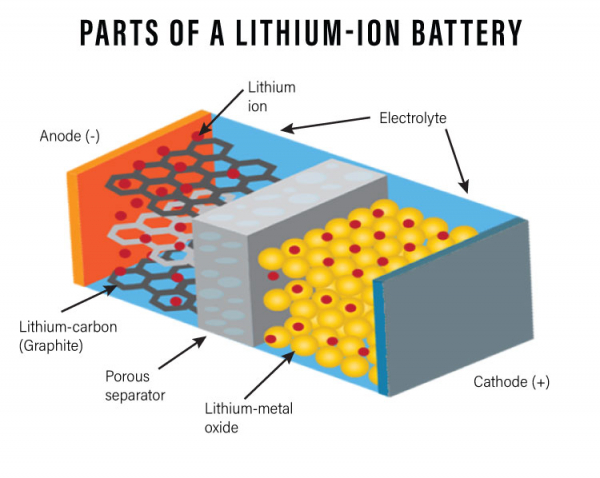Li-ion Battery Structure
 Li-ion batteries provide power through the movement of ions.
Li-ion batteries provide power through the movement of ions.
- Li-ion batteries consist of two electrolyte compartments kept apart by a separator.
- Each compartment contains a different electrolyte formulation that maximizes energy storage and transfer: lithium-metal oxides in the cathode, and lithium-carbon compounds in the anode.
- As ions are charged or discharged, they move through the porous separator, allowing electricity to be stored or used.
If the separator is compromised, the battery will short-circuit and generate heat.
